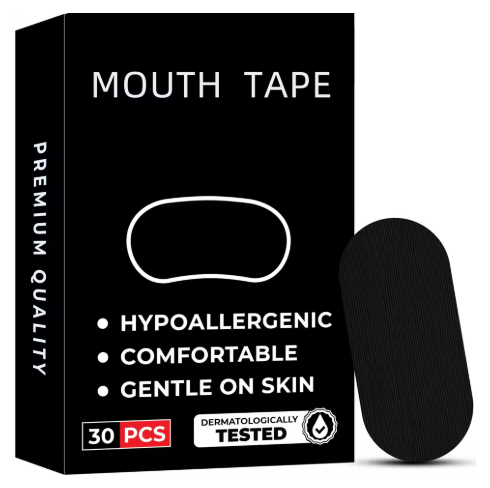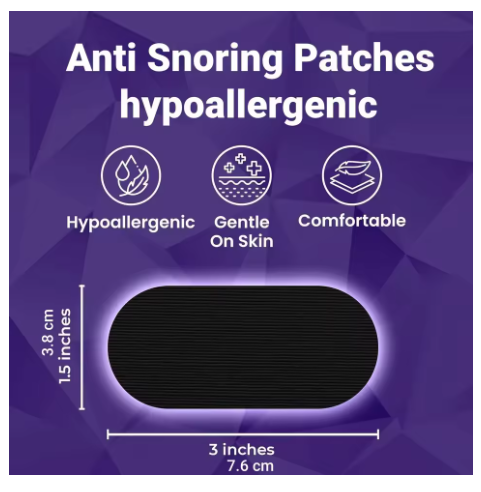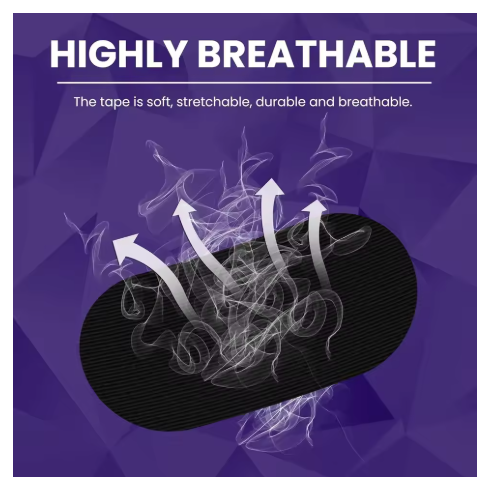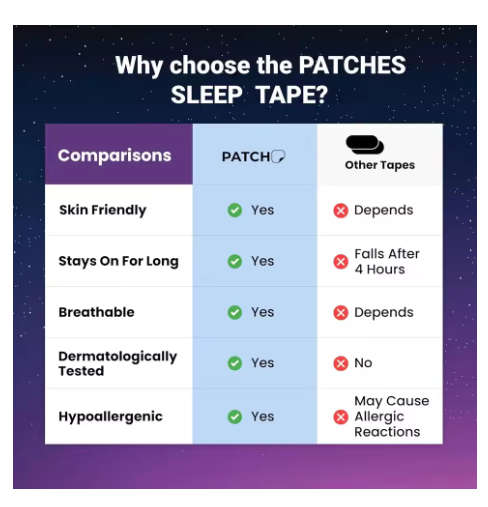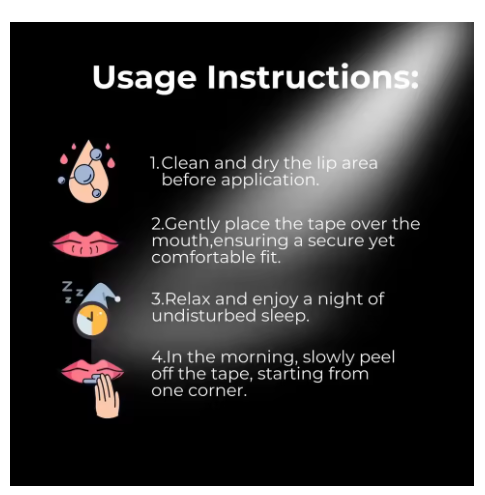Dovancy
Mouth Tape sleeping
Mouth Tape sleeping
Couldn't load pickup availability
Mouth Tape Sleeping: What It Is and Why People Do It
Mouth tape sleeping is a sleep practice where a person places a specially designed tape over their lips before bed to encourage nasal breathing throughout the night. It’s becoming increasingly popular in wellness and biohacking communities as a natural way to improve sleep quality and overall health.
How It Works
Mouth taping is based on the idea that nasal breathing is generally more beneficial than mouth breathing, especially during sleep. The tape gently seals the lips closed, preventing the person from breathing through their mouth and guiding them to use their nose instead.
The tape used is non-irritating, skin-safe, and designed to be breathable enough for safety—often made from materials like medical-grade adhesive or hypoallergenic fabric.
Potential Benefits
-
Improved Sleep Quality
Nasal breathing supports better oxygen exchange and can help regulate breathing patterns, leading to deeper, more restorative sleep. -
Reduced Snoring
Mouth taping may reduce or eliminate snoring in some people, especially if the snoring is caused by open-mouth breathing. -
Better Oral Health
Mouth breathing can dry out the mouth, contributing to bad breath, cavities, and gum disease. Taping helps keep saliva in place and maintain a healthy oral environment. -
Enhanced Oxygenation and CO₂ Balance
Nasal breathing supports nitric oxide production, which helps with vasodilation and oxygen delivery throughout the body. -
May Help with Sleep Apnea (Mild Cases)
For people with mild sleep apnea, keeping the mouth closed might reduce airway obstruction, though it's important not to self-treat serious conditions without a doctor's input.
Who Should Be Cautious
-
People with Obstructed Nasal Passages
If your nose is often congested or blocked, mouth taping might be uncomfortable or even unsafe. -
Those with Moderate to Severe Sleep Apnea
Mouth taping is not a substitute for CPAP or medical treatment. Always consult a healthcare professional before trying it. -
Allergies or Respiratory Issues
Conditions that make nasal breathing difficult (like deviated septum, chronic allergies, or colds) can make taping ineffective or unsafe.
Share
